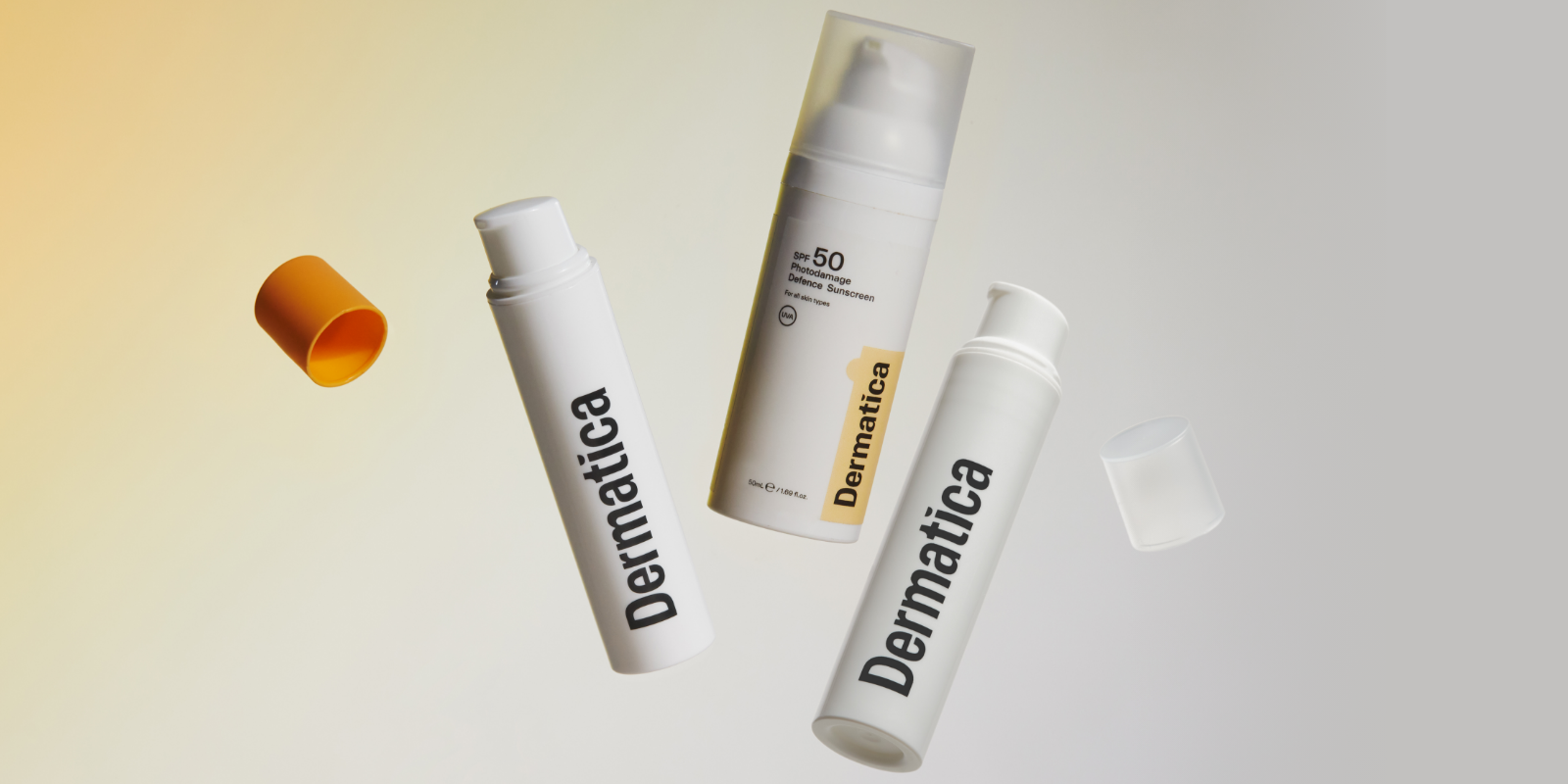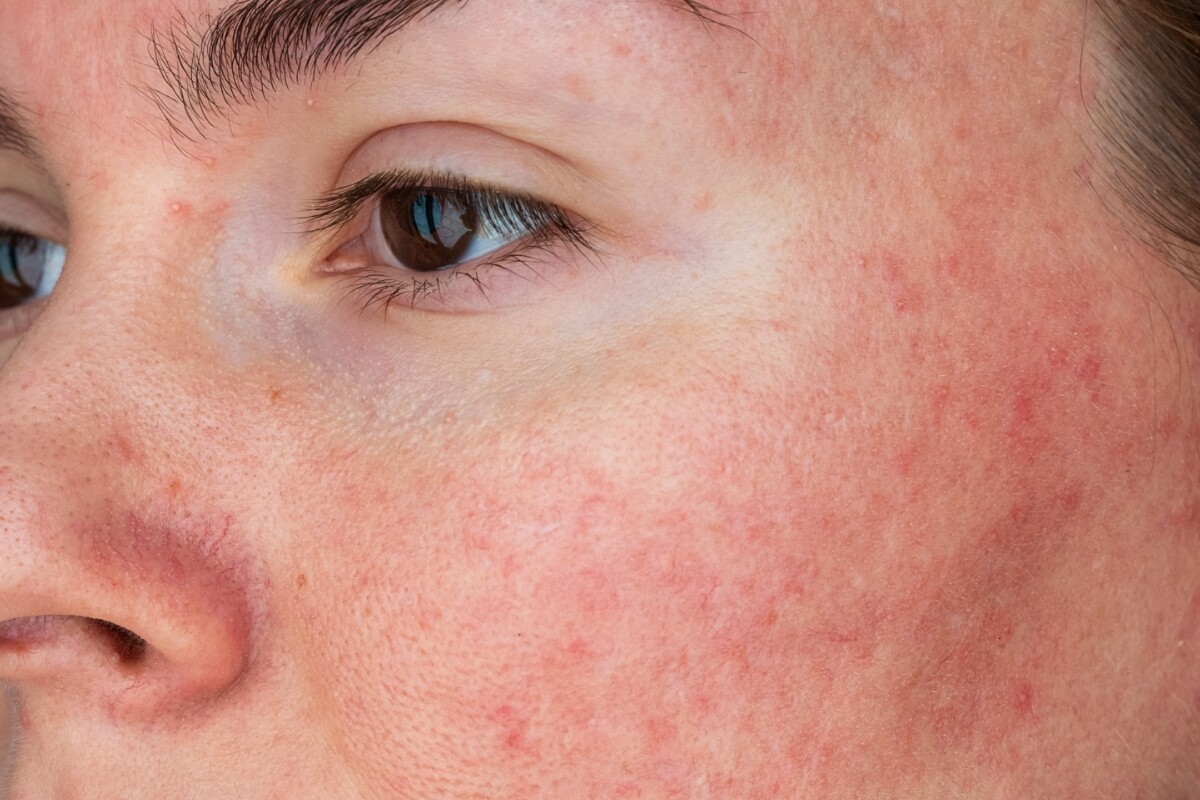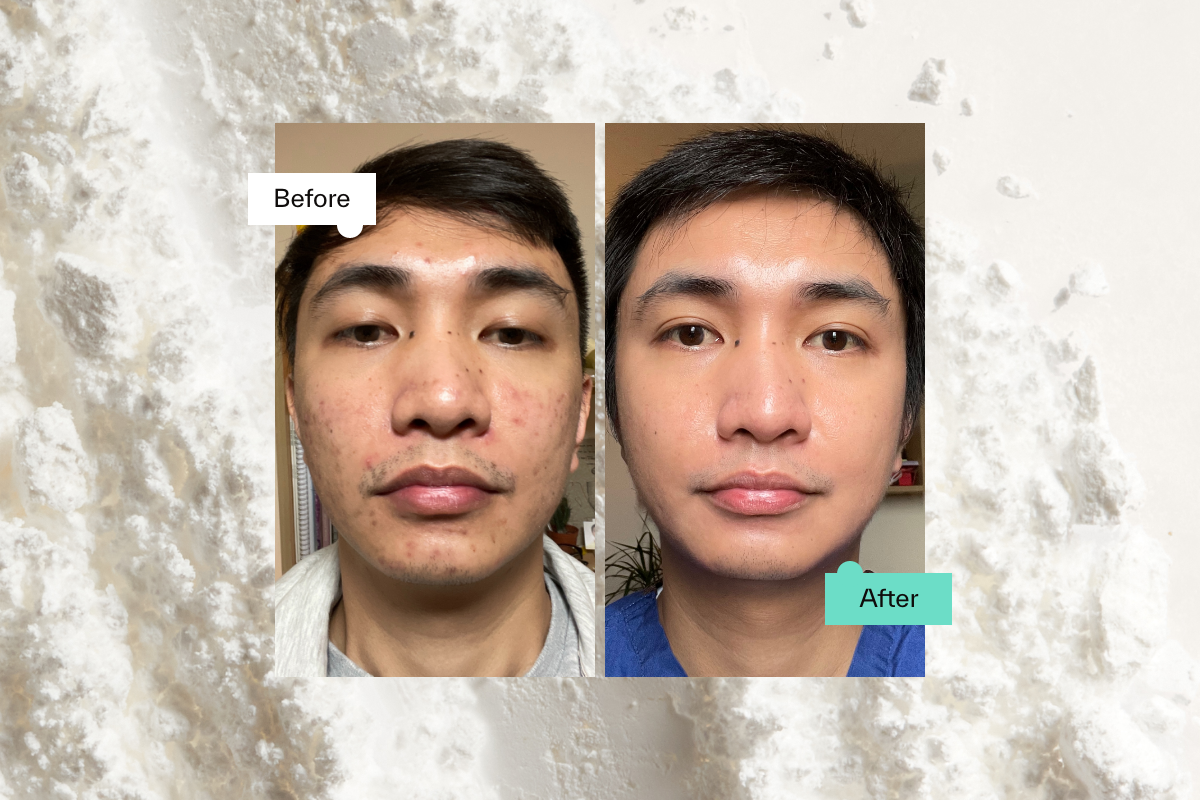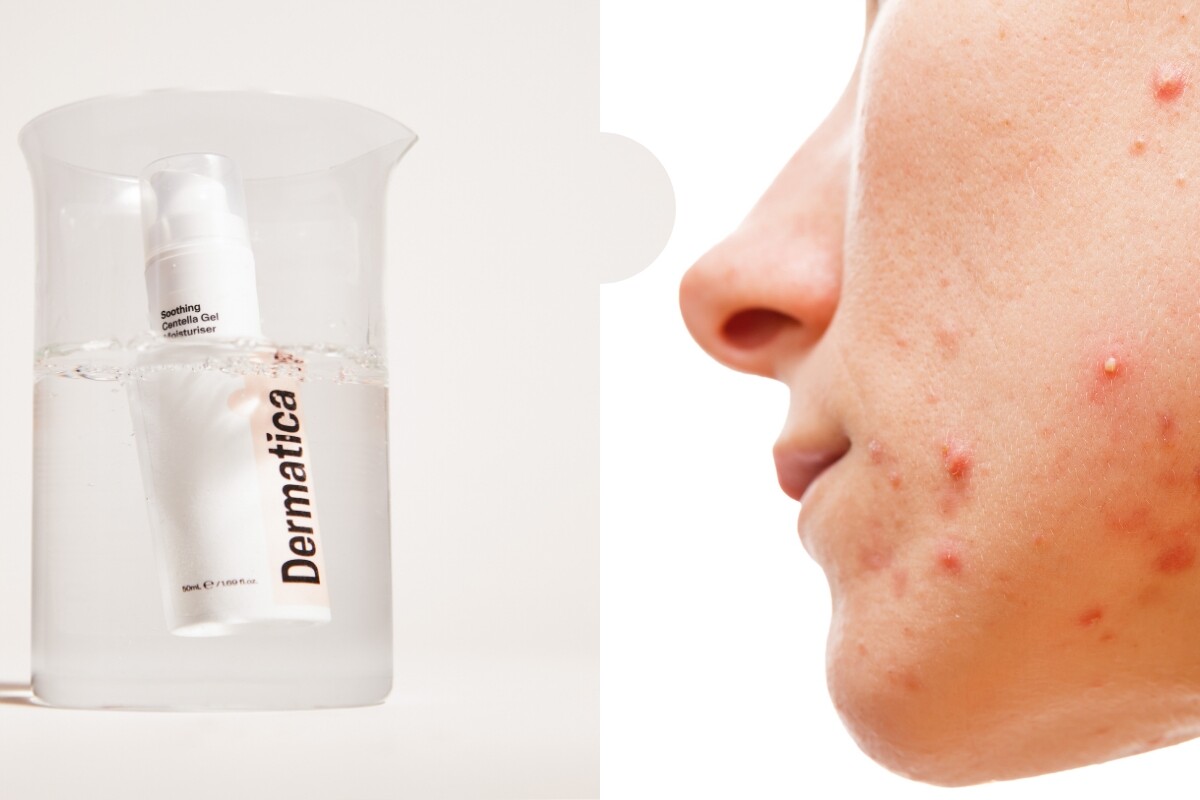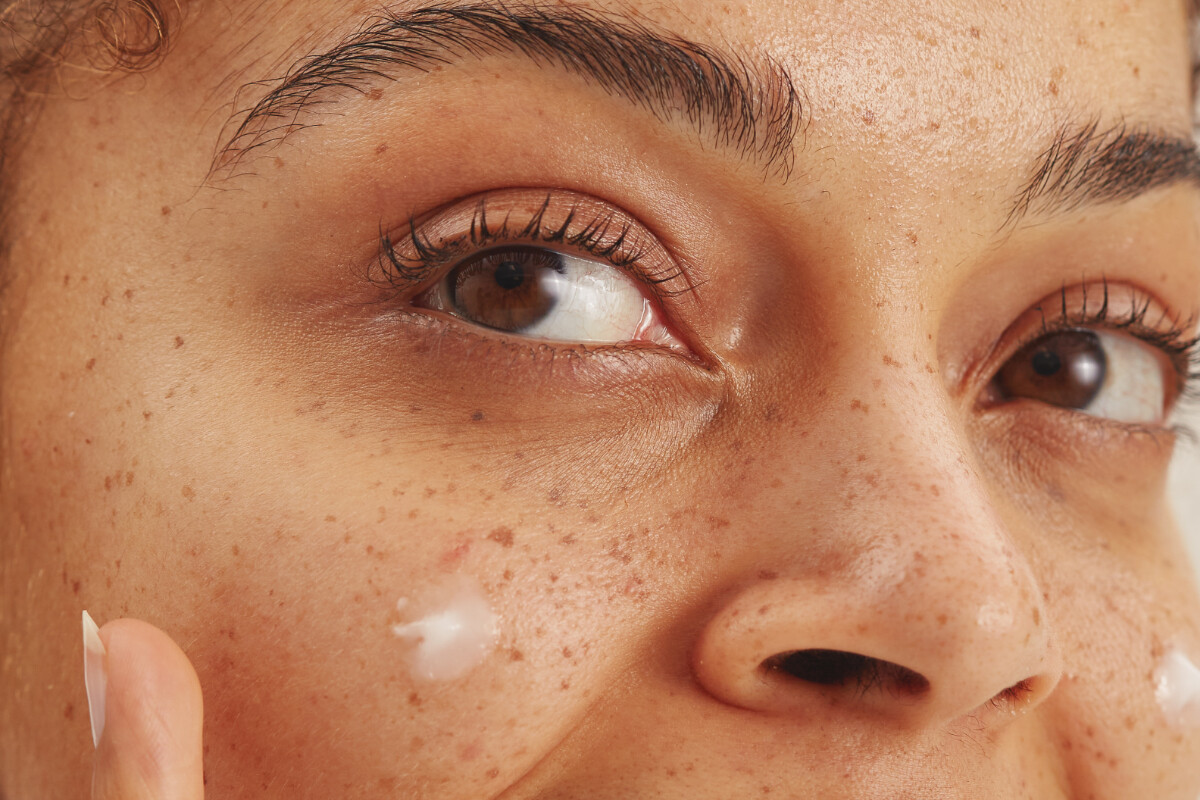Retinoids, Vitamin C and sunscreen: the evidence-based trio for younger looking skin
Our skin’s needs are constantly evolving. As we age, our skin’s physical structure begins to change, as does the way in which it responds to environmental stresses. In order to help our skin look and feel its best, it’s also important to evolve how we care for our skin – and importantly, the skincare ingredients we choose to use
The best ingredients for ageing skin
There is robust evidence to suggest that as we age our skin is more susceptible to damage from environmental factors like the sun, pollution and stress. The skin’s own levels of proteins like collagen and elastin also naturally deplete as we age, which can cause the skin to lose elasticity and firmness.[1] While reversing ageing entirely is not possible, it’s never too late to start a targeted skincare routine. Using prescription-grade ingredients can help your skin thrive at any age. And the three key skincare changes you need to make? Based on scientific evidence, we recommend using retinoids, Vitamin C and sunscreen.[2]
What do retinoids do?
Retinoids are famously multi-purpose, and can benefit many skin types and conditions from premature ageing to acne.[3] In this instance, we’ll focus on what they can do for ageing skin. Retinoids like tretinoin for example must be prescribed by a dermatology professional, because they’re up to twenty times stronger over-the-counter versions like retinol – which is why they deliver results in as little as eight weeks. Our dermatology experts use them in our formulas because retinoids help speed up skin cell turnover, which then encourages the growth of new, younger-looking skin.[4] Retinoids and also help to smooth fine lines and reverse photodamage (lines or hyperpigmentation caused from UV exposure) while boosting the production of dermal collagen. Collagen acts like a scaffolding structure under the skin, to keep it firm – and is something that naturally depletes as we age.[5]
Ascorbic Acid
One of the skincare industry’s most well-researched ingredients, ascorbic acid is a form of topical Vitamin C. It provides a myriad of benefits for skin showing signs of accelerated ageing including brightening and combating dark spots, boosting collagen production and preventing loss of skin firmness.[6] A powerful antioxidant, ascorbic acid importantly helps defend against the free radical damage caused by UV exposure – and works in tandem with your daily sunscreen to protect the skin from further environmental stress. Much like a serum or face oil, ascorbic acid is applied as a regular step in your morning routine. Ours comes in an airtight, opaque, 28-day supply to ensure the ascorbic acid remains at optimal strength and freshness – and not degraded by light or air.
Sunscreen
Most dermatologists will say that sunscreen is the most important step in a skincare routine – the most obvious reason being because it protects you from skin cancer. But when it comes to maintaining youthful-looking skin, sunscreen plays a huge part too, because we know that UV damage is the number one cause of premature skin ageing. As mentioned earlier, skin ageing can be accelerated by unprotected exposure to UV rays, as these can break down the skin’s natural (and precious) collagen and elastin.[7] Which can lead to fine lines, wrinkles and age spots developing, a process called photoageing. Using a sunscreen with SPF 50 every day helps to protect your skin from damage.[8]
If you’re using retinoids it’s particularly important to apply sunscreen daily, as the sun can cause retinoids to become less effective. Which if you’re using them to target premature ageing – will have an even greater impact on your skin. When you’re ready to experience this evidence-backed trio for yourself – start a free consultation and our dermatology experts will recommend the right retinoid formula for your skin’s needs.
References:
1. Zhang S, Duan E. Fighting against Skin Aging. Cell Transplantation. 2018 Apr 25;27(5):729–38.
2. Ganceviciene R, Liakou AI, Theodoridis A, Makrantonaki E, Zouboulis CC. Skin anti-aging strategies. Dermato-Endocrinology [Internet]. 2012 Jul 1;4(3):308–19. Available from: https://www.ncbi.nlm.nih.gov/pmc/articles/PMC3583892/
3. 1.Milosheska D, Roškar R. Use of Retinoids in Topical Antiaging Treatments: A Focused Review of Clinical Evidence for Conventional and Nanoformulations. Advances in Therapy. 2022 Oct 11;39(12):5351–75.
4. Zasada M, Budzisz E. Retinoids: active molecules influencing skin structure formation in cosmetic and dermatological treatments. Advances in Dermatology and Allergology [Internet]. 2019;36(4):392–7. Available from: https://www.ncbi.nlm.nih.gov/pmc/articles/PMC6791161/
5. 1.Al-Atif H. Collagen Supplements for Aging and Wrinkles: a Paradigm Shift in the Field of Dermatology and Cosmetics. Dermatology Practical & Conceptual. 2022 Feb 2;12(1):e2022018.
6. 1.Al-Niaimi F, Chiang NYZ. Topical Vitamin C and the Skin: Mechanisms of Action and Clinical Applications. The Journal of clinical and aesthetic dermatology [Internet]. 2017 [cited 2024 Jan 17];10(7):14–7. Available from: https://www.ncbi.nlm.nih.gov/pmc/articles/PMC5605218/
7. 1.Shanbhag S, Nayak A, Narayan R, Nayak U. Anti-aging and Sunscreens: Paradigm Shift in Cosmetics. Adv Pharm Bull [Internet]. 2019;2019(3):348–59. Available from: https://apb.tbzmed.ac.ir/Files/Inpress/apb-24144.pdf
8. 1.Guan LL, Lim HW, Mohammad TF. Sunscreens and Photoaging: A Review of Current Literature. American Journal of Clinical Dermatology. 2021 Aug 13;22(6):819–28.
Ash Sharma
Dr Ashwin Sharma is a medical doctor and writer with a particular interest in health technology, artificial intelligence and medical weight loss. He completed his training at the University of Leicester and Imperial College London, and has since been exploring the intersections of medicine, technology, and communication.

